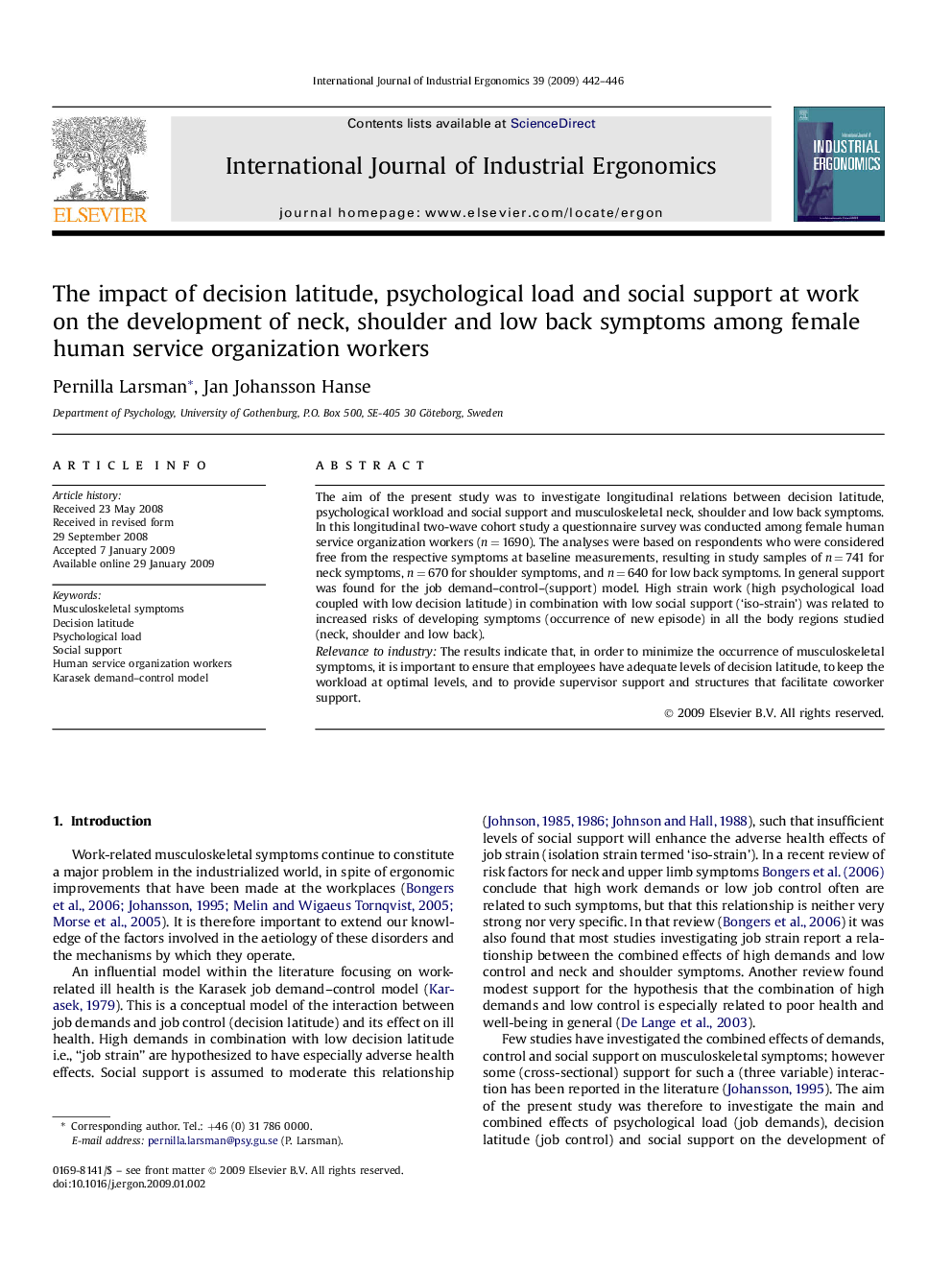| Article ID | Journal | Published Year | Pages | File Type |
|---|---|---|---|---|
| 1096591 | International Journal of Industrial Ergonomics | 2009 | 5 Pages |
The aim of the present study was to investigate longitudinal relations between decision latitude, psychological workload and social support and musculoskeletal neck, shoulder and low back symptoms. In this longitudinal two-wave cohort study a questionnaire survey was conducted among female human service organization workers (n = 1690). The analyses were based on respondents who were considered free from the respective symptoms at baseline measurements, resulting in study samples of n = 741 for neck symptoms, n = 670 for shoulder symptoms, and n = 640 for low back symptoms. In general support was found for the job demand–control–(support) model. High strain work (high psychological load coupled with low decision latitude) in combination with low social support (‘iso-strain’) was related to increased risks of developing symptoms (occurrence of new episode) in all the body regions studied (neck, shoulder and low back).Relevance to industryThe results indicate that, in order to minimize the occurrence of musculoskeletal symptoms, it is important to ensure that employees have adequate levels of decision latitude, to keep the workload at optimal levels, and to provide supervisor support and structures that facilitate coworker support.
